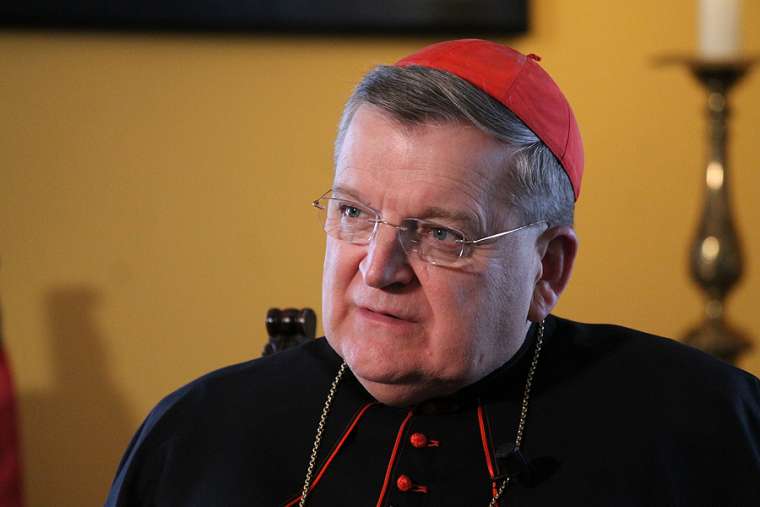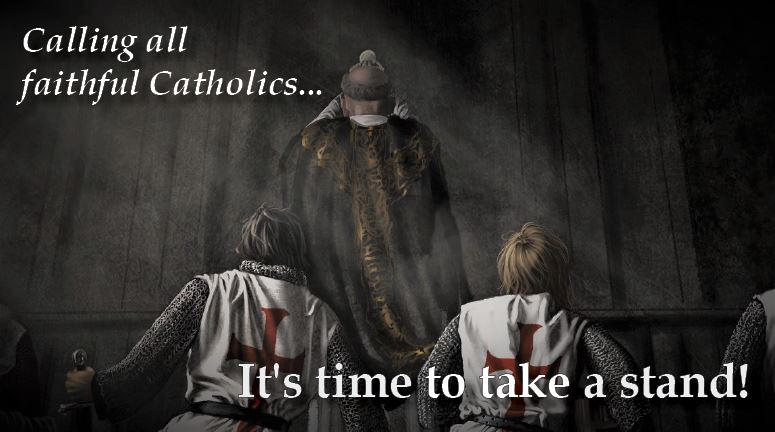Although the argument should be clear from a careful reading of my piece on whether and how the Church can defend herself against the onslaught of a wayward Pope such as this one, in order to avoid misrepresentation of my position by certain dishonest commentators I thought it would be wise to stress the following points:
1. The theological writers have not argued, nor have I argued, that a validly elected Pope can be removed from office merely because he is unworthy, as was the case with Benedict IX, described as “a disgrace to the Chair of Peter” by the Catholic Encyclopedia. Popes are not subject to “no confidence” votes.
Rather, the writers (such as Cajetan) address three cases: (1) a clearly invalidly elected Pope, who is thus an antipope; (2) a Pope whose title to office is unclear and must be resolved in some manner; and (3) a Pope who falls into formal heresy and would thereby lose his office, as even Cardinal Burke has observed.
2. Church history provides numerous examples of the first two cases, ultimately resolved by synods or councils that declared the deposition of the anti-Pope(s) in favor of the one determined to be the true Pope. But even here the result is not always beyond dispute. Sylvester III, for example, is included in the canon of Popes (the 146th Roman Pontiff) even though he was declared deposed at the Synod of Sutri and is considered by many historians to be a usurper of the papal throne.
Likewise, Benedict IX, also declared deposed at Sutri (having resigned the papacy in 1045 in return for a payment of money from his own godfather, who succeeded him as Pope), nonetheless reigned again twice (in 1045, after reneging on his resignation, and again from 1047-48). He is thus further listed as both the 147th and 150th Roman Pontiff. As the Catholic Encyclopedia explains in an annotation to its canon of Popes: “He appears on this list three separate times, because he was twice deposed and restored.” In fact, Benedict IX (along with Sylvester) appears in every recognized canon of Popes, including the Vatican’s. That is why Francis is the 266th Pope, not the 264th.
3. As to a Pope who falls into heresy, history provides no case of a deposition. The closest case is the posthumous anathematization of Honorius I for his role in promoting the Monothelite heresy. The absence of historical examples, however, does not mean that should a Pope profess formal heresy he would not lose his office or that the Church, by way of a synod, imperfect council or assembly of cardinals, could not declare him to have fallen from office by his own act, as the theological writers have argued. Based on this permissible theological opinion, Cardinal Burke (who does not accuse Francis of heresy) explains as follows:
 CWR: Back to this question about the Pope committing heresy. What happens then, if the Pope commits heresy and is no longer Pope? Is there a new conclave? Who’s in charge of the Church? Or do we just not even want to go there to start figuring that stuff out?
CWR: Back to this question about the Pope committing heresy. What happens then, if the Pope commits heresy and is no longer Pope? Is there a new conclave? Who’s in charge of the Church? Or do we just not even want to go there to start figuring that stuff out?
Cardinal Burke: There is already in place the discipline to be followed when the Pope ceases from his office, even as happened when Pope Benedict XVI abdicated his office. The Church continued to be governed in the interim between the effective date of his abdication and the inauguration of the papal ministry of Pope Francis.
CWR: Who is competent to declare him to be in heresy?
Cardinal Burke: It would have to be members of the College of Cardinals.
Finally, the Cardinals could issue the formal correction long promised by Cardinal Burke, condemning the errors of Francis, including his attempt to overthrow the teaching of Benedict XVI, John Paul II and all their predecessors, going back to Our Lord Himself, on the impossibility of admitting the divorced and “remarried,” who are living in adultery, to Holy Communion under any circumstances, as well as Francis’s truly disastrous introduction of a form of situation ethics into the life of the Church according to which “complex cases” are exempt from application of exceptionless precepts of the divine and natural law.
The formal correction would at least put “Bergoglianism” out of commission even if Francis remains Pope, which, I stress, we must regard him to be unless the Church (in the manner indicated by Cardinal Burke) were someday to declare otherwise—an outcome that is not theologically impossible, however extraordinary it would be.
In no event, however, can the hierarchy simply do nothing to resist this Pope in his relentless effort to impose his erring opinions on the Church.
Register to hear Chris Ferrara speak at the Catholic Identity Conference, Nov. 2-4







